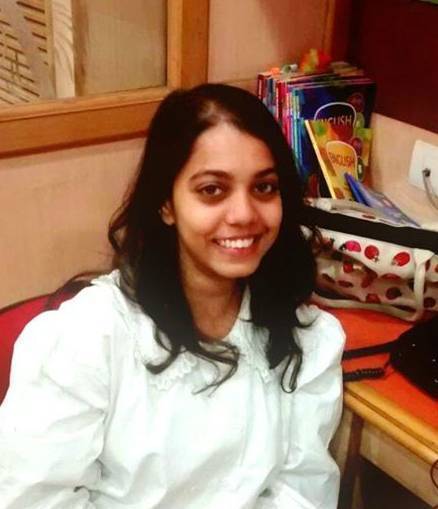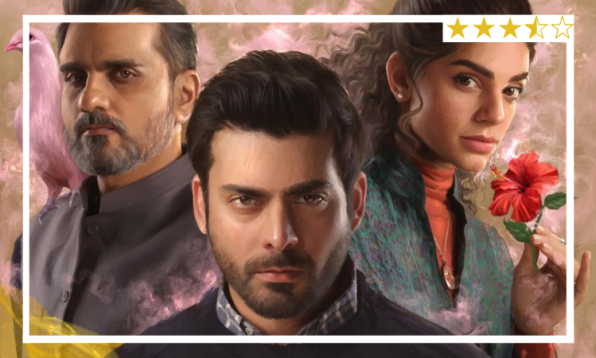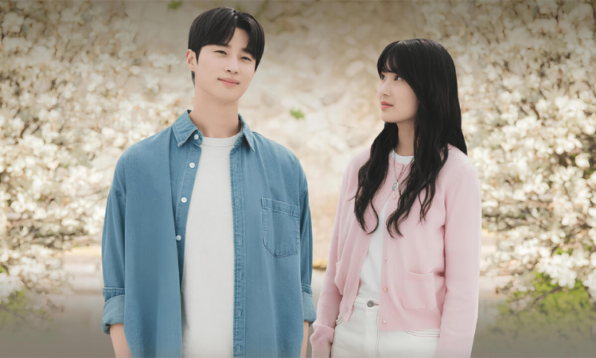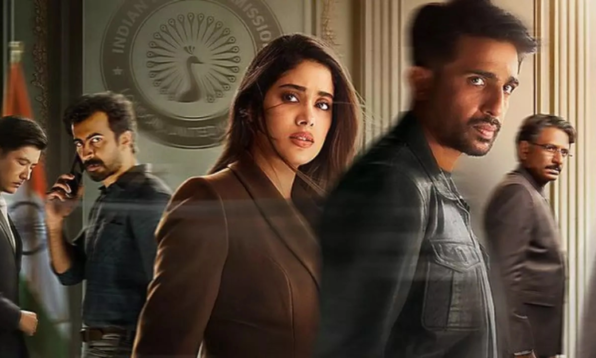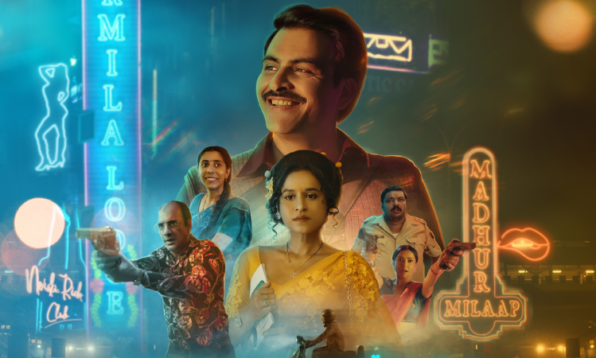The character of Manikarnika, or Lakshmibai, Rani of Jhansee is not unknown to any of us. Her bravery and staunch refusal to give into the British is a tale told in history books galore. However, thanks to Kangana Ranaut and her upcoming film, Manikarnika, there is a renewed interest in the legend of this fierce warrior.
As the release date of the film approaches, Juggernaut Books is releasing The Queen’s Last Salute: The story of the Rani of Jhansee and the 1857 mutiny, a story that revolves around Maharani Lakshmibai and her brave lady-in-waiting and companion, Chandraki. As the queen prepares to fight the British, Chandraki is sent on a secret mission, one that could turn the tide. Retelling the story of 1857 through the lives of two fearless women, this is historical fiction that you won’t be able to put down.
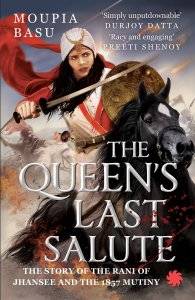
Read an excerpt from The Queen’s Last Salute: The story of the Rani of Jhansee and the 1857 mutiny here:
An Immeasurable Loss
Chandraki and Gauri stood in front of the palace gates, watching the elephants laden with huge bags walk out of the fort one after another.
‘What’s in those bags?’ Gauri enquired.
‘Sugar,’ Chandraki replied.
‘For what?’ Gauri asked, perplexed.
‘To be distributed across the kingdom. The next king of Jhansee has just been born, Gauri!’ Chandraki exclaimed.
‘The king wants everyone to know the “meethi khabar”.’ Gauri jumped with joy. ‘Oh, how sweet!’
Giggling, the girls ran down the road towards the town to witness the celebrations. As they glided from shop to shop, they bumped into their friend Amba, who stopped them from crashing into her. ‘Watch your step, girls!’ she admonished.
Amba, who was Gauri’s childhood friend, had been married off a few years ago and now lived outside the main town, along the road that led to Gwalior. Her husband was a vendor of daily commodities that included wood and grain and had a shop in the market just outside the walls of the city. His business was doing well, and the couple had managed to get a house of their own. The two friends embraced each other.
‘We are so happy that the Maharaja now has an heir,’ Gauri said.
‘Maharani Lakshmibai has brought great fortune for Jhansee.’ Amba smiled.
‘You are soon to be a mother, too,’ Gauri said, clasping her friend’s hand. ‘So, when is the baby arriving?’
‘In four months,’ Amba replied shyly. ‘Join us for a meal and the badhaiya dance once the baby is born.’
‘We’ll visit you the moment we hear the good news,’ Chandraki promised.
•
Jhansee celebrated the birth of its heir with great fervour. Food and clothing were distributed to the poor, and the kingdom feasted and rejoiced for weeks. Chandraki was especially happy now that her Maharani was mother to the future king of Jhansee.
‘It pleases me to see the Maharani so happy,’ she remarked to Gauri as the two of them made their way through the multitude of devotees who thronged the big temple situated at the far end of the town. It was the month of Ashvin and the Navratri fair was in full swing. The bazaars swelled with people and goods. Jhansee’s Navratri fair was well known in Bundelkhand. Devotees and tourists came from far and across kingdoms to participate in the ten-day-long festival. Scores of tents were pitched on the open grounds around the temple. Colourful stalls selling bangles, clothes, accessories, sweetmeats, and utensils had sprung up along the streets that led to the temple dedicated to Siva and his royal consort, Gauri.
People came with jasmine garlands, offerings of rice, and gaudy red veils embellished with zari. The queues were long everywhere, at the temple, at the stalls, and at the fair. The king and queen graced the temple on Maha Ashtami, the eighth day of Navratri. The king arrived atop an elephant swaying to the rhythmic chants of ‘Durga mata ki jai’, ‘Maharaj ki jai’, and ‘Maharani ki jai’. The queen followed in a palanquin, with her new born child in her arms. The strains of achri wafted through the thick autumn air.
The priest blessed the royal family and offered a puja in the name of the newborn prince, after which they were escorted to one of the tents that was bigger than the rest. It was decorated with garlands and festoons. Women blew conch shells as the queen alighted from the palanquin. An attendant raised the flap of the tent, and Maharani Lakshmibai stepped into its cool interior. Almost immediately, the nagada sounded, and a troupe of badhaiya dancers converged in front of their tent. The splash of colours was almost blinding, and with that the bright sunshine created a psychedelic effect as the dancers swirled and swished to the beat of the dholaks. Hundreds of people had gathered, they pushed each other to catch a glimpse of the king and, especially, the queen.
It wasn’t every day that they witnessed such a sight. The dancers spun around like whirling dervishes, their ghagras flaring and ghungroos jangling loudly. Lakshmibai smiled radiantly through all of this and looked at her husband who seemed to be enjoying himself.
Chandraki, who had accompanied the queen, stood outside the royal tent watching the show and admired the efforts of the spirited performers to dress up in all that finery and dance so passionately in this heat. As the dancers came closer and closer to the tent, spinning and jangling, and the various drums thundered in unison, the prince suddenly let out a piercing shriek and followed it up with a loud wail. The dancers continued dancing, and the dhols blared even louder in order to be heard above the baby’s shrieks. The higher the pitch of the music, the louder the prince howled. Lakshmibai tried to silence him, rocking him gently and caressing him, but his wails got shriller with every thundering beat of the nagada.
‘I think we better leave, the prince is uncomfortable.’ Lakshmibai nudged her husband. The king heard her silently, drumming his fingers on the couch and continued watching the performance for another five minutes, after which he rose from his seat and summoned one of the attendants.
‘Get the palanquin ready for the queen. We are leaving!’ He emerged from the tent followed by his queen and waving to the people who had gathered on either side of the arena, walked up to the elephant as cries of ‘Maharaj ki jai’ filled the air.
Damodar Rao, the heir to the throne of Jhansee, died after four months. Jhansee cried, and so did the king and queen. Chandraki was beside her queen always, trying to console her, but all efforts were in vain. What could she do to alleviate the queen’s grief? She urged her to step out of the palace and go horse-riding with her. But the queen remained ensconced in her chamber, refusing to budge.
The selected portion has been excerpted from The Queen’s Last Salute: The story of the Rani of Jhansee and the 1857 mutiny, published by Juggernaut Books.
Moupia Basu has a master’s degree in English literature from St Stephen’s College, Delhi University. She grew up in the Delhi of the seventies and eighties. She has worked as a journalist with Times of India, Economic Times, Indian Express and Business Today and has written on a variety of topics including business, education and travel. Her debut book, Khoka, was published in 2015. She lives in Pune.
